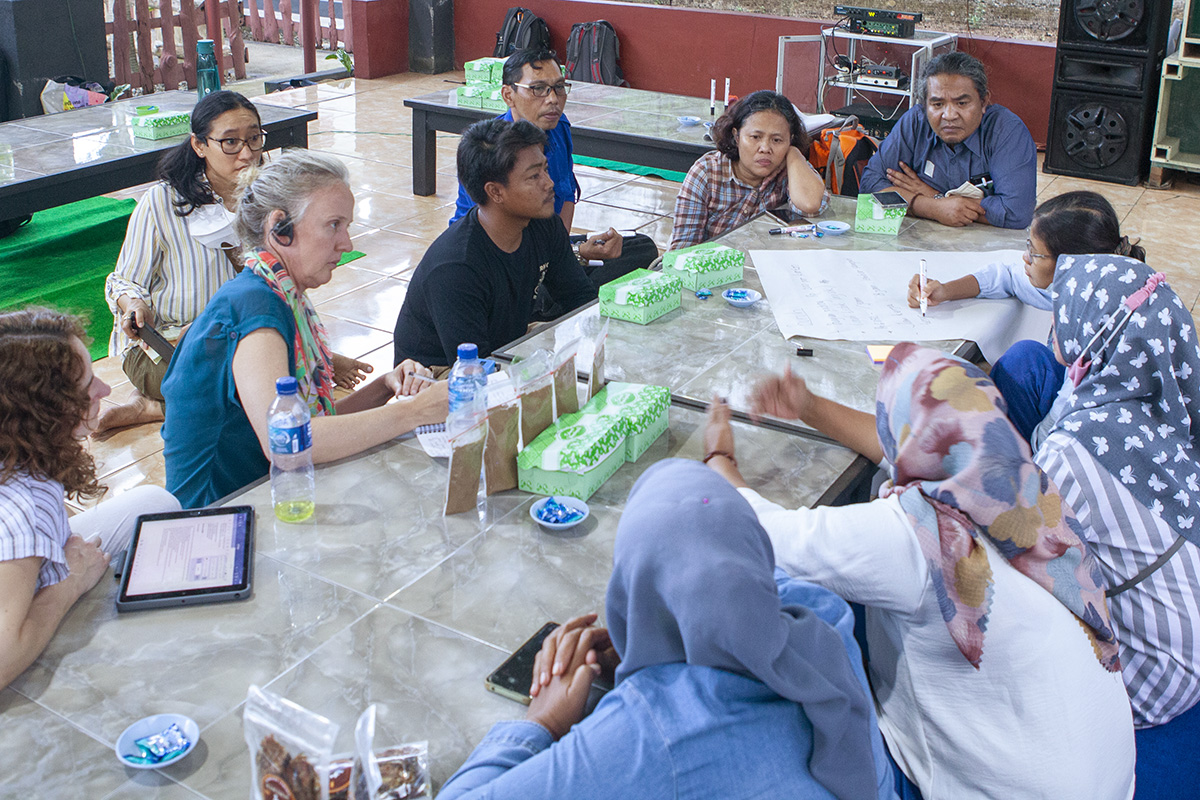Donors and grant-making institutions, including the Freedom Fund, often make visits to implementing partners for various reasons – accountability, transparency, verification of results, evaluation of impact and supporting partners in identifying solutions to challenges. However, these visits can present logistical challenges to partners, or could even invoke anxiety for partners who feel the need to impress donors due to existing, or perceived, power imbalances.
What can donor organisations do in advance to make the visit beneficial to both themselves and the partner? And what does it take for frontline partners to anticipate such visits?
I recently spoke with some of the Freedom Fund’s frontline partners to explore ways to make donor visits more beneficial and mutually satisfying. Several key points emerged.
Firstly, don’t keep them guessing. It is essential for the donor to share expectations in advance so that the partner can prepare accordingly. Uncertainty should be minimised, and the host organisation’s expectations should also be considered. Frontline partners should not feel like mere spectators, but should actively engage in the visit’s objectives. “Implementing partner staff should not just be like animals at the zoo waiting to be ‘seen’ by visitors”, said partner staff. Rather, they must be involved and informed in the preparation and objectives of the actual visit.
Secondly, create an easy environment. Visitors should strive to create a friendly and relaxed atmosphere for the hosting team. Hosting donors can be extremely stressful, and a tight, uneasy environment only exacerbates the pressure. “It is already nerve-wracking to host a donor and, as in an interview, a tense environment would make the brightest candidate fumble,” said partner staff.
It’s crucial to avoid making visits feel like interrogations and to acknowledge the power dynamics at play. Despite efforts to shift power to frontline institutions, when money is involved there is the fear of losing funding and the perception of donor power over their partner. To counter this, the donor must continually promote a power with approach.
Power over tends to reinforce existing power structures and perpetuate inequalities. Power with promotes social justice, collective well-being and sustainable change. Power with prioritises collaboration, empathy and inclusivity, and therefore can lead to more resilient, adaptive and thriving communities that honour the dignity and agency of all partners and individuals.
Furthermore, be intentional in the team composition. The personnel of visiting teams should be carefully considered to facilitate natural engagement and spontaneity. Interactions may be affected if there is a power imbalance within the visiting team. For instance, if governance and operational teams are present simultaneously it may lead to inhibited or compromised communications. “It is very unlikely that a project officer will freely engage with a donor in the presence of the board chairman,” said partner staff.
Lastly, listen to partner needs. It’s essential to recognise that frontline organisations are often underfunded. While visiting teams may not be able to address funding gaps immediately, acknowledging and noting these gaps can provide reassurance and encouragement. Frontline organisations are often brimming with innovative ideas, but lack adequate resources to implement them fully. They see donor visits as an opportunity to demonstrate the gravity of the issues they are addressing in the community and highlight existing funding gaps. Listen and acknowledge this.
In conclusion, donor monitoring and evaluation/capacity-building visits should be approached as collaborative opportunities to enhance impact and build strong partnerships. By fostering open communication, mutual respect and a shared commitment to social justice, these visits can contribute to sustainable change and empower frontline organisations to address pressing issues effectively. The visits can be done in a more relaxed environment that does not look like a supervisory or verification visit. As you visit frontline organisations, please make a deliberate effort to appreciate the achievements of the host organisation, even as areas of improvement are noted. Share related information or content to make it possible to learn together.
Photo credit: Armin Hari / Freedom Fund




